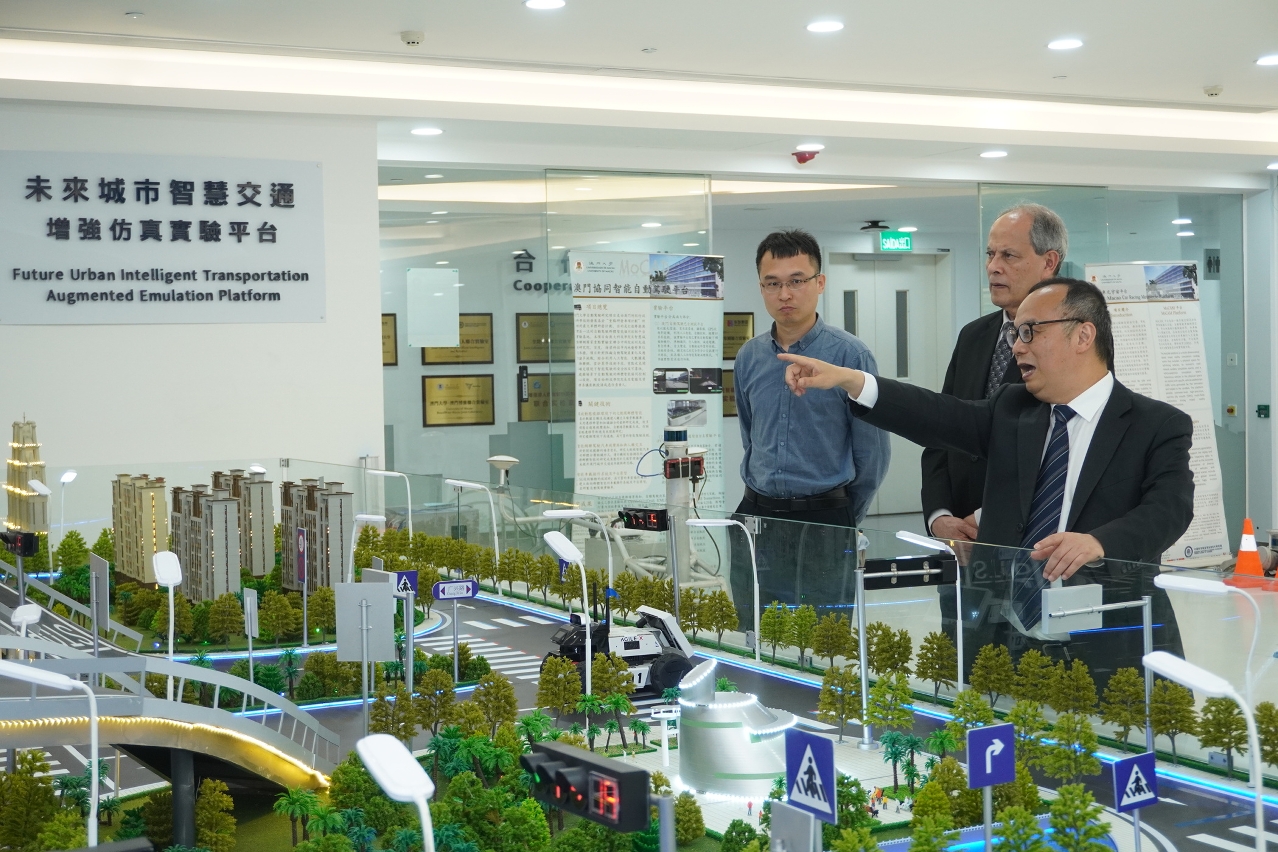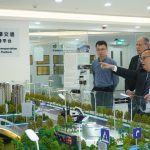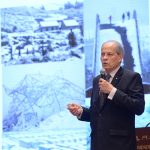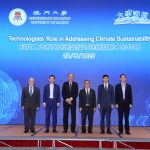 Saifur Rahman visits State Key Laboratory of Internet of Things for Smart City
Saifur Rahman visits State Key Laboratory of Internet of Things for Smart City
Saifur Rahman, president and CEO of the Institute of Electrical and Electronics Engineers (IEEE), visited the University of Macau (UM) and exchanged ideas with researchers at the university on disciplinary development. Rahman also gave a talk titled ‘Technologists’ Role in Addressing Climate Sustainability’ as part of the University Lecture Series to explore the importance of carbon reduction to the sustainable development of the environment and how to build a relevant scientific and technological system.
In his welcome speech at the talk, UM Rector Yonghua Song said that UM is committed to promoting research to realise carbon reduction. For instance, UM’s State Key Laboratory of Internet of Things for Smart City has been carrying out studies on theories and technologies that can benefit the integrated energy system of smart cities to achieve low-carbon operation, optimisation, and safety prevention based on the Internet of Things, big data, and artificial intelligence. In addition, UM’s Institute of Applied Physics and Materials Engineering has been conducting research on fundamental theories and technologies for new energy harvesting, high-density energy storage, and carbon dioxide conversion. To build a clean, low-carbon, safe, and efficient smart energy system, UM aims to put forward theories and systems that are of fundamental importance to contribute to smart city development and sustainability, which will also serve the 'dual carbon’ goal of China and contribute to climate sustainability.
During the talk, Rahman discussed the global objective of achieving carbon reduction and how it requires cooperation between industrialised countries and emerging economies to create a systematic solution that includes advanced low-carbon power generation, energy storage, demand-side management, and energy efficiency improvement technologies. He also stressed the importance of technology practitioners to the promotion of climate sustainability, and shared current and emerging technologies for mitigating and adapting to climate change. The lecture also included a Q&A and discussion session, where the speaker interacted with UM Faculty members, students, and other participants virtually and in person.
After the lecture, Rahman visited UM’s Institute of Applied Physics and Materials Engineering, State Key Laboratory of Internet of Things for Smart City, State Key Laboratory of Analog and Mixed-Signal VLSI, and Centre for Cognitive and Brain Sciences. During the tour, Song gave the guest an introduction of UM’s development history, research layout, campus facilities, and development direction. Rahman spoke highly of the research achievements attained by UM in the fields of smart city and low-carbon energy. He exchanged ideas with researchers at UM on disciplinary development and future planning, and expressed hope to strengthen cooperation with them and jointly contribute to climate sustainability.
IEEE is the world's largest non-profit professional technical society and plays an important role in international innovation and cooperation in electrical and electronic technology. Rahman is an internationally renowned scientist and academic leader in the fields of energy and power. He currently serves as the president of IEEE, as well as the founding director of the Advanced Research Institute, the Joseph R. Loring Professor of Electrical and Computer Engineering, and the leader of the Center for Energy and the Global Environment at Virginia Tech. In addition, he is an IEEE Life Fellow and a recipient of the IEEE Millennium Medal. He was the president of the IEEE Power and Energy Society (PES) as well as the founding editor-in-chief of IEEE Electrification Magazine and IEEE Transactions on Sustainable Energy.




